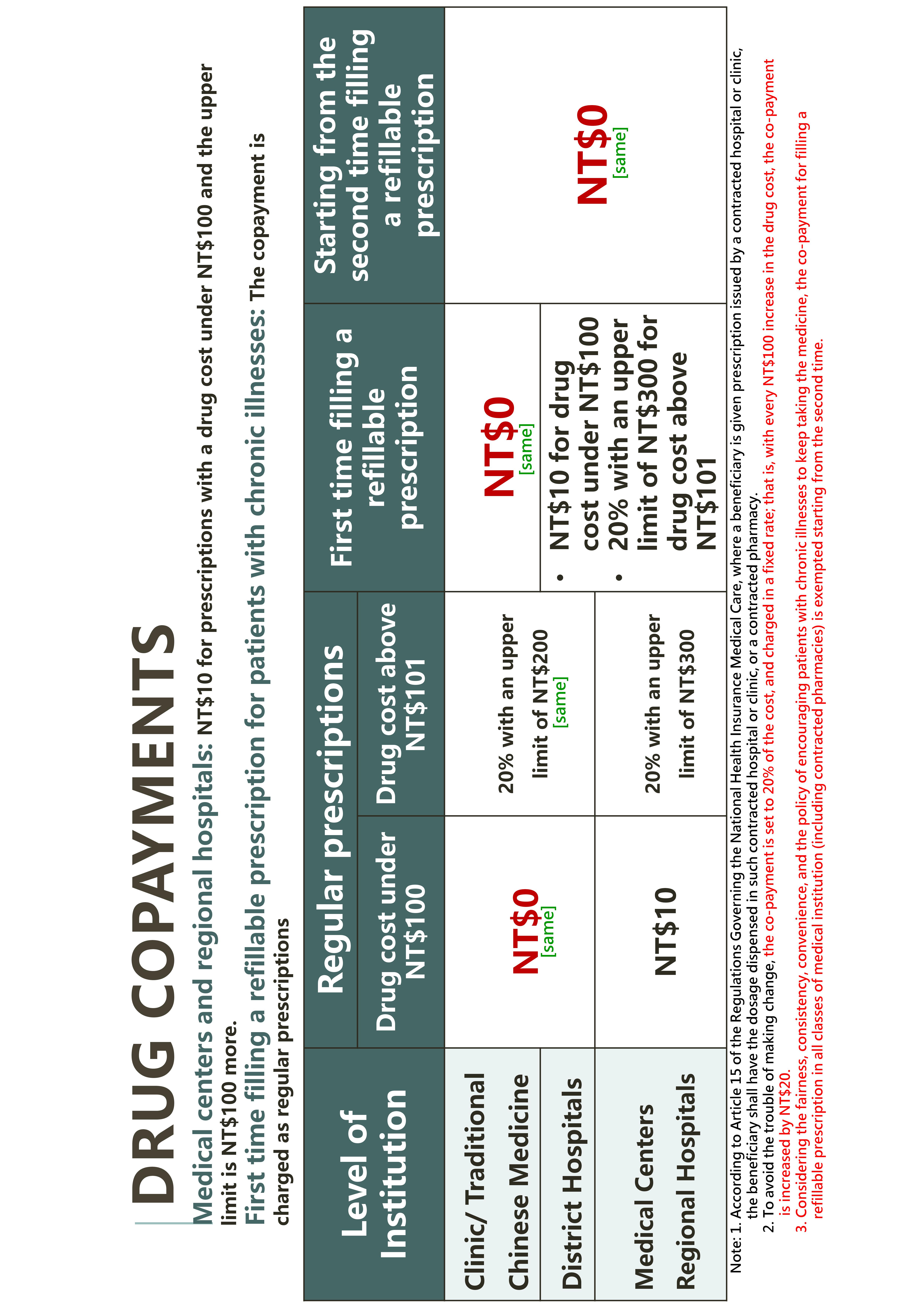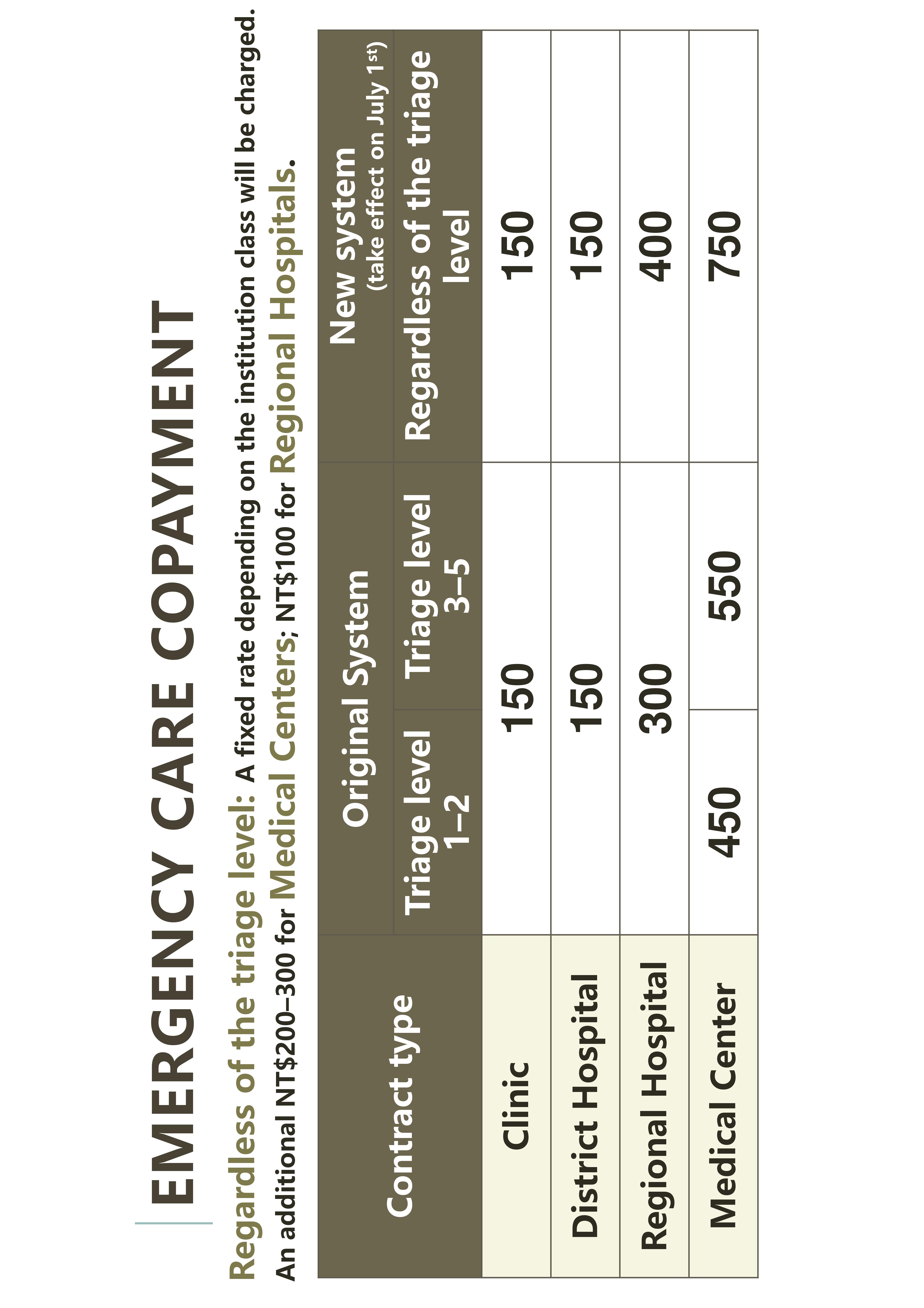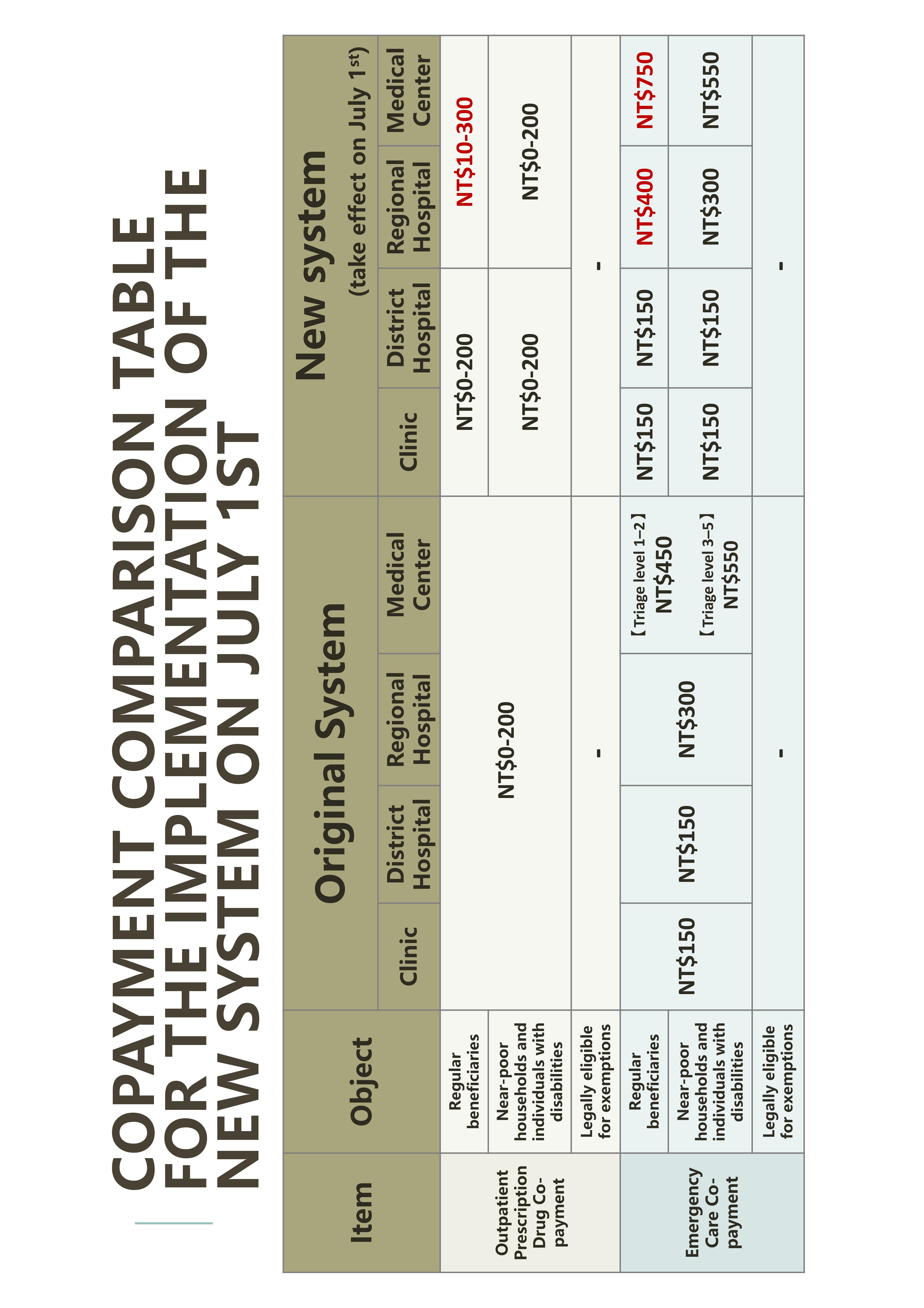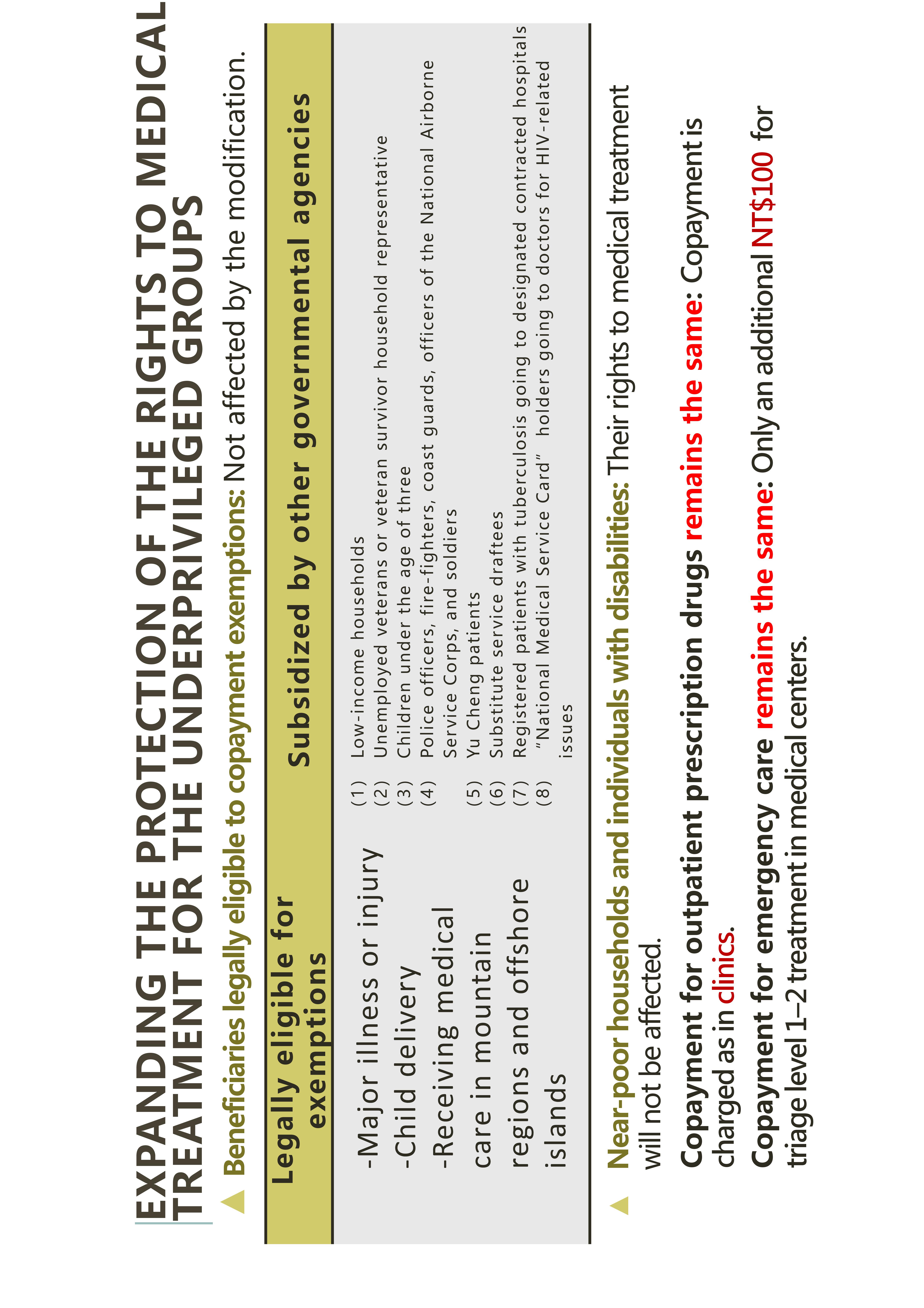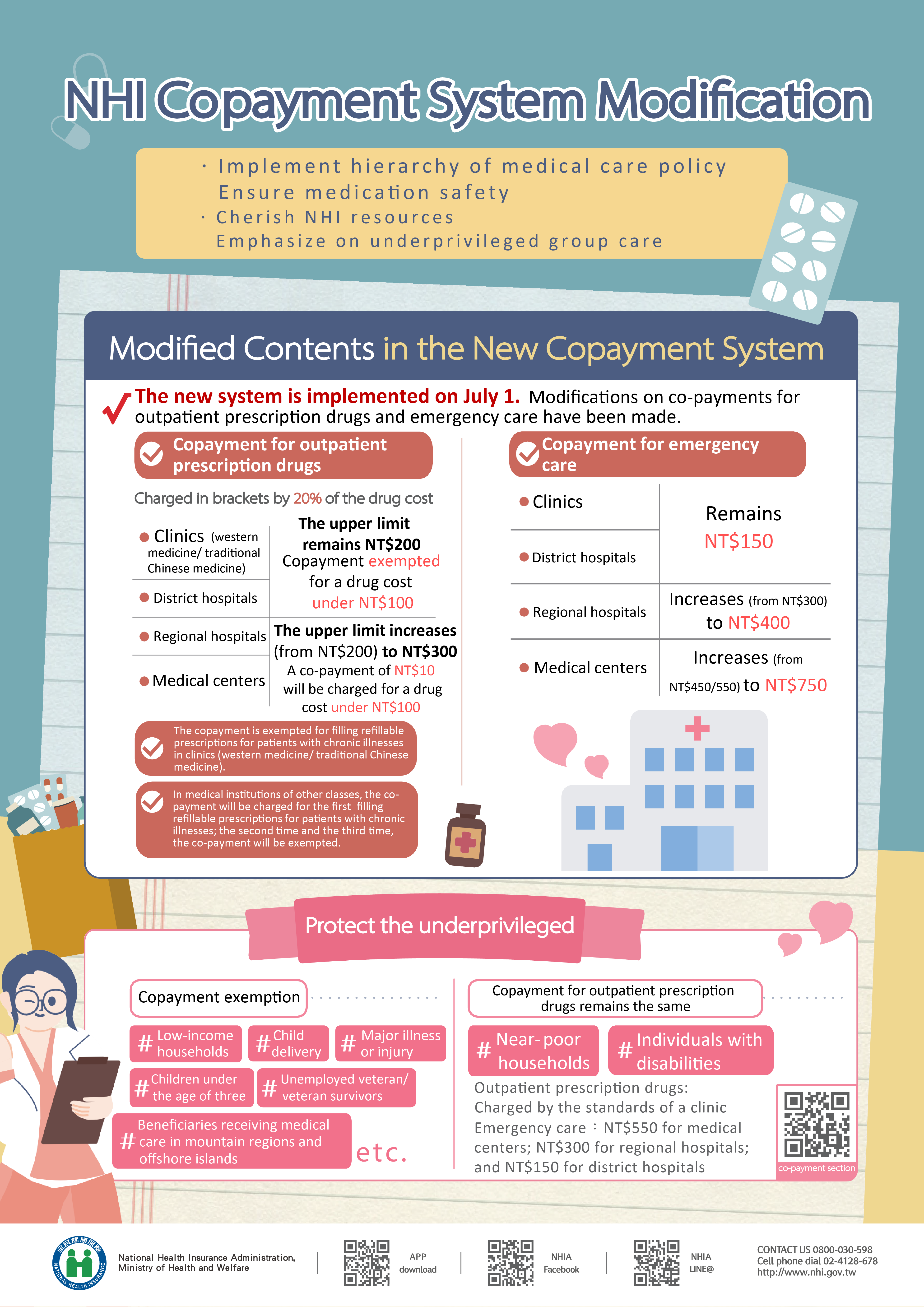The Ministry of Health and Welfare announced a modified NHI co-payment system for outpatient prescription drugs and emergency care. In the modified system, the outpatient prescription drug co-payment in district hospitals and clinics remains exempted for prescriptions with a drug cost under NT$100 and for prescriptions with a drug cost of NT$101 or more, 20% of the cost will be charged with an upper limit of NT$200; in medical centers and regional hospitals, a co-payment of NT$10 will be charged for prescriptions with a drug cost under NT$100 and for prescriptions with a drug cost of NT$101 or more, 20% of the cost will be charged with an upper limit of NT$300. In terms of refillable prescriptions for patients with chronic illnesses, a co-payment will be charged according to the standards of regular outpatient prescription drugs when filling the prescription for the first time; starting from the second time, the prescription can be filled with no extra charge. To encourage patients with stable chronic illnesses to go to doctors in their local clinics, the co-payment remains exempted for filling refillable prescriptions in a clinic. To help ease the economic burden on the near-poor households and individuals with disabilities, the outpatient prescription drug co-payment will be charged according to the standards of a clinic (please refer to the Appendix for details) regardless of the class of the medical institution that they visit.
To reserve the emergency care resources in large hospitals for patients with urgent and severe conditions, the co-payment system for emergency care in medical centers and regional hospitals is also modified; a fixed rate will be charged based on the class of the medical institution the patient visits. The emergency care co-payment in medical centers and regional hospitals has been raised to NT$750 and NT$400, respectively, whereas in district hospitals and clinics, the co-payment remains NT$150. For near-poor households and individuals with disabilities, the emergency care co-payment is NT$550, NT$300 in regional hospitals, and NT$150 in district hospitals and clinics.
In addition, the exemption of co-payment remains the same for the eligible beneficiaries according to current laws, that is, beneficiaries who are with major illness or injury, child delivery, or receiving medical care in mountain regions and offshore islands. The same applies to those who are eligible to exemptions under the subsidy of other governmental agencies, including low-income households, veterans, children under the age of three, police officers, fire-fighters, coast guards, officers of the National Airborne Service Corps, soldiers, Yu Cheng patients, and substitute service draftees. Moreover, to ensure the rights to medical treatment for the near-poor households and individuals with disability cards, their eligibility for co-payment exemptions remains the same with the new co-payment system.
The purpose of implementing the new co-payment system is to ensure the hierarchy of medical care policy, prompt people to cherish medical resources, and hopefully ease up the overcrowding situation in the emergency room of large hospitals by prompting people to select medical facilities according to the severity of their conditions. For patients with chronic illness in a stable situation, they are encouraged to visit lower class hospitals and clinics, so that the co-payment system modification will not affect their medical expenses. Before the new system is officially implemented, National Health Insurance Administration will continue to gather feedback and comments to improve the stipulation of relevant supporting measures. Hopefully, with the new co-payment system, the public can slowly modify their medical visit habits, be aware of medication safety, and cherish medical resources; moreover, it is expected to improve the effectiveness of medical services to optimize the benefits of NHI.
